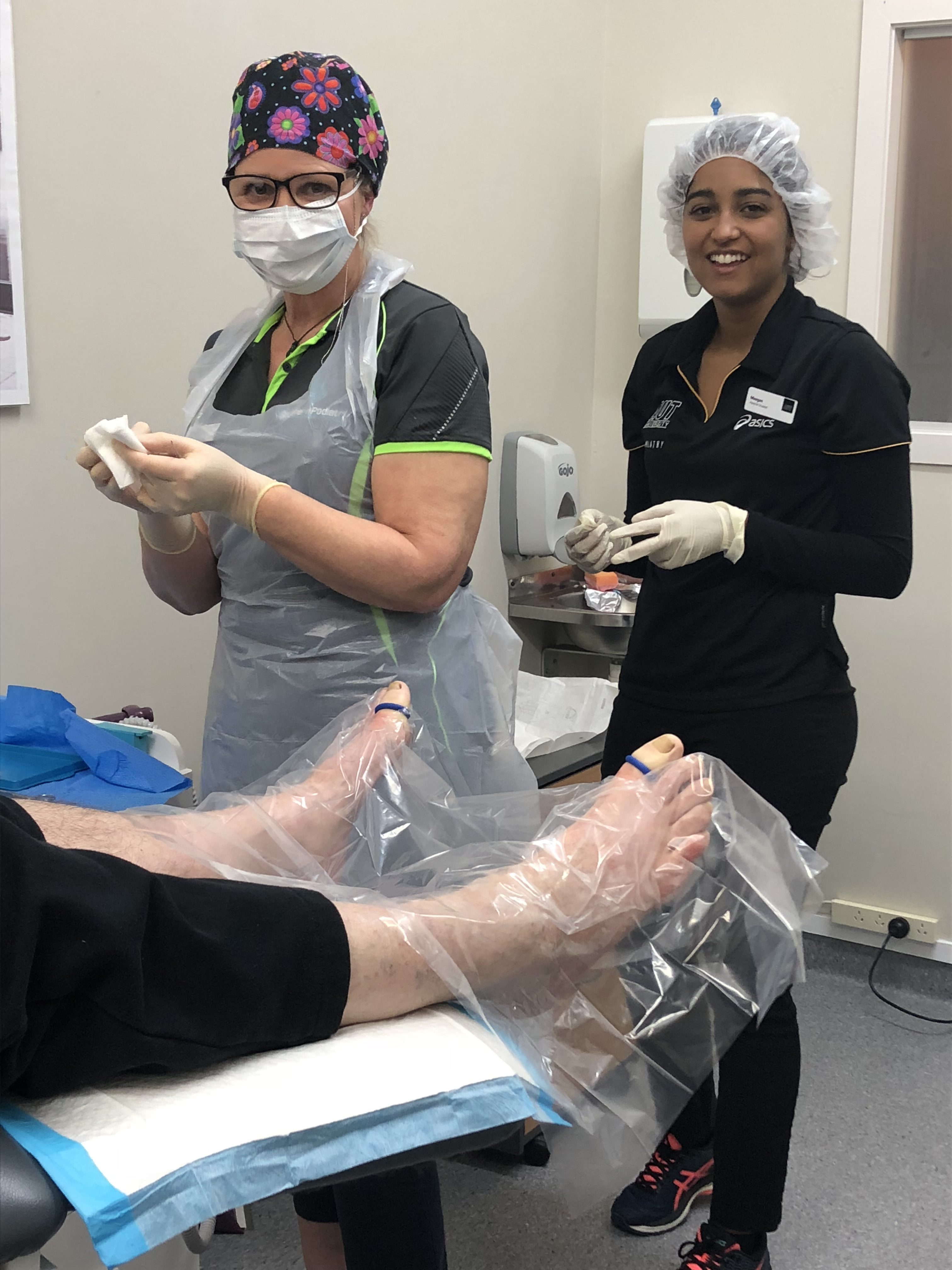Ouch- Are you suffering in silence with ingrown toenails?
Did you know that Podiatrists perform surgery for Ingrown Toenails and Verrucae procedures? And we love it!

Ingrown toenails are common in the podiatry clinic. Our preferred option initially is always to treat it conservatively and minimise pain but surgery is another treatment plan routinely offered. Conservative measures include;– Removal of the nail spicule, advice on appropriate footwear and correct nail cutting techniques if these issues have proven to be contributing to the ingrown toenails.

– Nail surgery is only indicated when conservative management of ingrown toenails fails. It may also be required when nails are abnormally curved, thickened, damaged or if fungal infection is a problem. It involves removing part or the whole of the nail plate and matrix.
Once the matrix is removed the offending piece of nail will not grow back.
The procedure itself is painless- due to the administration of a local anesthetic. For those that might be apprehensive about the injections, Treena and the Podiatry team at Southern Podiatry routinely have these injections performed on themselves by the AUT student as part of their curriculum and learning. They know exactly how the procedure feels and can reassure you throughout the process.
To prevent the nail from regrowing, a chemical is applied to the surgical site to inhibit nail matrix formation. Can nails regrow? Yes they can- very easily. For some people, regrowth may be the preferred option for cosmetic purposes.
If the side/s of the nail are removed, the skin will heal to give a normal looking nail that is slightly narrower.
If the whole nail is removed, the nail bed toughens over a few weeks so the area is not tender.
Your PODIATRIST will instruct you in detail on post-operative care as the first 3 days following nail surgery are crucial for rapid healing.
